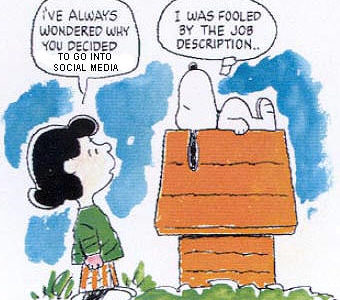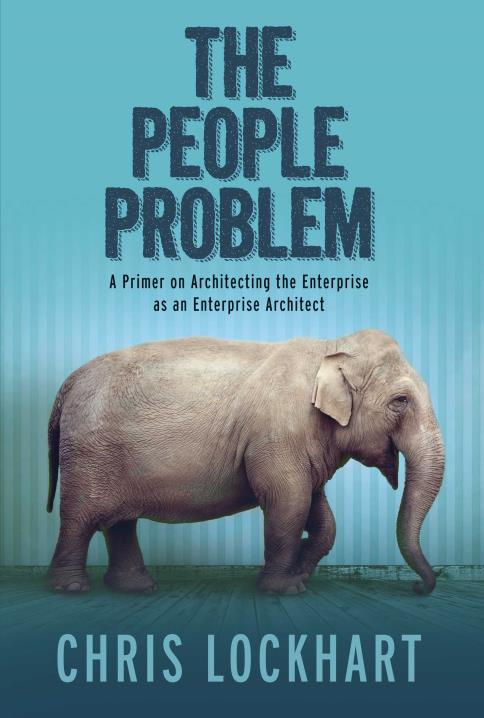A Word on Social
The world is consumed with social media. I don’t even need to go on about how obsessed we are with all things social and how it is revolutionizing the world (in some cases literally). I don’t need to expound upon how your business can flourish or flounder based on a poorly executed social campaign or how your job can vanish overnight based on an ill-thought out late night tweet. If we listen to the experts, social is not only the means to an end, it is often the end unto itself. It is omnipresent, omniscient, omnivorific and omnipotent. It is alpha and omega. Without social media we are but ill-informed, disconnected grubs inhabiting the dimly lit recesses of our individual crevices in the grand landscape of the Internet. We would do well to heed the warning that not being social, that being unsocial, will lead to apocalyptic ruin. Or something.
Social is Just a Tool
There are many things in this world that are truly revolutionary: Electricity; The Wheel; Agriculture; Natural Law; The Internet; Penicillin; The Steam Engine; The Prime Directive. In this category I would abstain from placing things like the iPad, Facebook, the Toyota Prius or any other innovative tool. I would do so primarily because they are just that, tools. They may be innovative, they may be disruptive, but they are not revolutionary. The term “Social” and everything it encompasses, from behaviors to technologies to business models, are innovative (some more than others). I hardly think anything under that umbrella fundamentally alters human behavior. It merely offers new ways to express it.
At the end of the day, “Social” is merely a tool. It is a tool for interaction, communication, organization and community. It can build bridges, or tear them down. It can promote, campaign for or against, demonstrate, unify, polarize, vilify or facilitate any other existing human psychological interaction. We haven’t grown a new part of the brain to use Social like we did when we picked up a stick and whittled the end in order to kill that pesky Mammoth. We haven’t physiologically changed in response to external stimuli like we did when we began to speak or cultivate crops. Nation States and Empires aren’t organized around the use of Twitter. Wars haven’t been fought over Foursquare or Swarm (other than the ongoing Battle for Mayor of that local Starbucks). The Social cosmos gives voice and engenders momentum. It doesn’t fundamentally create it from total vacuum.
Social Enterprise
For business, the toolset represented by Social is an amazing arsenal to be used for marketing, sales, advertising and revenue generation. Companies aren’t altruistic because human beings aren’t altruistic. They leverage the proverbial arrows in their quiver in order to achieve something. That something, almost universally, is revenue for their stakeholders and shareholders. Forgive my apparent cynicism, but there are few examples of companies, of enterprises, doing anything that didn’t ultimately serve this purpose. I’m open to suggestions to the contrary. While there may be a few examples, they are but a single drop of spilled oil in a vast ocean of self-interest.
Companies don’t “do” Social because they ultimately care about what their customers think. They “do” it because happy, engaged, evangelic customers contribute to the bottom line of the company while angry, disrespected, disinterested customers can kill the bottom line. The Enterprise is engaged in Social because the customers express their desires via Social and therefore Social is good for the Enterprise. The business doesn’t care about allegedly revolutionary technology, “magic” devices, or broad-based consumer engagement except as an ultimate means to profit. When all is said and done, Social is a tool and the tool is used by the Enterprise to make money. Where it becomes interesting is when some Enterprises do it better than others.
Social isn’t the strategy. The business has a strategy (or doesn’t) and Social is part of the means of executing against that strategy.
Enter the Experts
“An Enterprise is only as effective as the experts it hires.” Like that? It is catchy, kitschy and I sorta wish I could trademark that for my consulting business. The reality is that it is a direct quote from an ex- ex- colleague. I suppose if your bread and butter is factoring consulting rates, then this perspective makes sense. Unfortunately for the rest of us, it is a terrible, destructive, needlessly expensive and horribly cynical viewpoint that serves as a parasitic drag on today’s Enterprise. With the rise of Social, however, it has found fresh legs to run, like the annual Swine Flu that stays a few steps ahead of efforts to eradicate it.
So-called “experts” are a plague in any industry that is based around mere tools. In this case, however, there is an element of truth underpinning the label. Frankly this makes it doubly insidious. The reality is that Social, while certainly a tool, is also a bit of a mindset. That is, there are practices and standards that go along with Social that inform its use, its execution and ultimately its value. Like the beginning of any new field, it is the “experts” who understand (or pretend to understand) the practices and standards around the tooling. A tool is a tool. Anyone can eventually understand it and use it. The practices are accumulations of experiences that inform the use of the tool. In this sense, for now there are indeed Social experts. They are the ones who have experienced or at least thought through the use of Social and sell that perspective and/or knowledge to those who haven’t.
Does it sound familiar? To any IT Architect, it should. It is the basic formula behind such blockbusters as SOA, Cloud Computing, Portals, Identity Management, Business Process Management, etc., etc., ad nauseum. If you are in a particular field, you sell your experience and/or knowledge to those who don’t have either. To be honest, there isn’t any magic at all to it. It is largely a factor of direct experience and the customer’s comfort level with the material. But to be fair, there are some who possess the critical ability to think conceptually and that can make or break Architecture or Strategy type consultations. So it isn’t a direct comparison. But as Architects, we should at least be familiar with the plight of companies that are dealing with Social experts. I recommend you use air quotes when saying Social Media Expert out loud. As in, oh sure they’re an expert in a “wink-wink-nudge-nudge say no more!” kind of way.
Heed the Experts or Not?
So is there some secret magic sauce to Social, some special knowledge that is non-transferable and requires an expert in order to be successful? I would normally argue no. But I’m starting to come around to something I have been noodling over. Basically the first part of the thesis is: Social is a tool. That tool requires some level of expertise around practices and standards in order to deliver value. Today’s Companies are not being sold the right expertise for the right application of the tool.
The question then becomes, what is the right expertise for the right application of Social and who has that expertise? Luckily, in order to answer that, I know a Strategy Expert available for hire…
Footnote: the Snoopy graphic, aside from likely being an illegal use of Charles Schultz’s classic imagery, was snatched from this blog. I wanted to ask the author if I could use his (also likely illegal) version of the Snoopy graphic. But I got distracted and didn’t. I hope this notice serves as sufficient homage.


